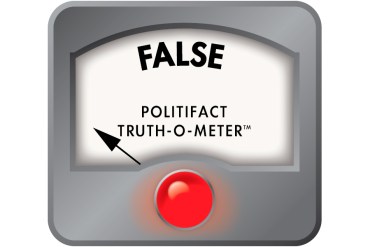7 of 10 States Backed Abortion Rights, but Don’t Expect Change Overnight
Voters backed abortion rights in seven of the 10 states where the issue appeared on ballots Tuesday, including in Missouri, among the first states to ban abortion after the U.S. Supreme Court overturned federal abortion protections with its 2022 decision in Dobbs v. Jackson Women’s Health Organization. At first glance, the nation’s patchwork of abortion […]
Tribal Health Leaders Say Feds Haven’t Treated Syphilis Outbreak as a Public Health Emergency
The National Indian Health Board has urged the U.S. Department of Health and Human Services to declare a public health emergency as an alarming syphilis outbreak, which disproportionately affects Native Americans, continues. This is the latest plea for more resources from tribal leaders after previous requests went unanswered.
7 of 10 States Backed Abortion Rights. But Little To Change Yet.
Voters in 10 states weighed in on abortion rights this election. Despite the results supporting abortion rights in seven of those states, much of the abortion landscape on abortion won’t change much immediately, as medical providers navigate the legal hurdles that remain.
Community Health Workers Spread Across the US, Even in Rural Areas
Community health workers are increasingly common in rural areas, where they help patients overcome barriers to accessing care and staying healthy.
Trabajadores de salud comunitarios ayudan a mejorar la salud de habitantes de zonas rurales
Se ha comprobado que estas iniciativas mejoran la salud de las personas y el acceso a la atención preventiva, al tiempo que reducen las costosas visitas al hospital
As Nuns Disappear, Many Catholic Hospitals Look More Like Megacorporations
The nation’s Catholic health systems were largely founded and led by nuns with a mission to serve the sick regardless of their creed or financial means. Today, no nuns run any U.S. Catholic health system, while many of these hospitals pull in billions, according to their financial reports.
Sin monjas en sus pasillos, muchos hospitales católicos parecen más mega corporaciones
La Iglesia Católica aún regula la atención que se brinda a millones de personas en estos hospitales cada año, usando directrices religiosas para prohibir abortos y limitar anticonceptivos.
Paid Sick Leave Is Up for a Vote in Three States
The coronavirus pandemic underscored the importance of paid sick leave, a benefit to help workers and their families when they fall ill. Now voters in Missouri, Nebraska, and Alaska are deciding whether employers must provide it.
Trump Wants Harris To Pay a Political Price for Generous Immigrant Health Policies
Several Democratic-led states have expanded public insurance programs to cover immigrants in the U.S. regardless of legal status. Donald Trump is trying to blame Kamala Harris for the policies.
Trump quiere que Harris pague un precio político por ofrecer salud a inmigrantes sin papeles
Estados liderados por demócratas, como Illinois, están abriendo cada vez más programas de seguros públicos a inmigrantes sin papeles.
‘Dreamers’ Can Enroll in ACA Plans This Year — But a Court Challenge Could Get in the Way
Nineteen states are seeking to stall a Biden administration rule that would allow recipients of the Deferred Action for Childhood Arrivals program to enroll in ACA coverage and qualify for subsidies. DACA provides work authorization and temporary deportation protection to people brought to the U.S. as children without immigration paperwork.
Vance Wrongly Blames Rural Hospital Closures on Immigrants in the Country Illegally
Experts disputed the claim by Republican vice presidential candidate JD Vance, noting that a range of other issues — from low reimbursement rates to declining patient use — combine to cause these facilities to shutter.
Del medio millón de beneficiarios de DACA, el gobierno estima que alrededor de 100.000 que anteriormente no tenían seguro podrían inscribirse a partir del 1 de noviembre.
Exclusive: Emails Reveal How Health Departments Struggle To Track Human Cases of Bird Flu
Emails show how health officials struggle to track the bird flu, partly in deference to the agricultural industry. As a result, researchers don’t know how often farmworkers are being infected — and could miss alarming signals.
Beneficiarios de Medicare gastarán menos en medicamentos en 2025
El período de inscripción anual para que los beneficiarios de Medicare renueven o cambien su cobertura de medicamentos, o elijan un plan Medicare Advantage, comenzó el 15 de octubre y se extiende hasta el 7 de diciembre.
Watch: ‘Silence in Sikeston & The Effects of Racial Violence’
KFF Health News Midwest correspondent Cara Anthony talks about how racism affects health on Nine PBS’ “Listen, St. Louis with Carol Daniel,” stemming from her reporting for the “Silence in Sikeston” multimedia project, on the impact of a 1942 lynching and a 2020 police killing on a rural Missouri community.
Medicare Drug Plans Are Getting Better Next Year. Some Will Also Cost More.
Every year, Medicare officials encourage beneficiaries to shop around for their drug coverage. Few take the time. This year, it might be more important than ever.
Helene and CVS Land Double Whammy for 25,000 Patients Who Survive on IV Nutrition
A Massachusetts woman ended up stranded in the hospital because CVS stopped providing the IV nutrition she needs to survive at home. Without it, she’d starve.
Super Bowl Rally Shooting Victims Pick Up Pieces, but Gun Violence Haunts Their Lives
Eight months after the Feb. 14 shooting, people wounded at the Kansas City Chiefs parade are wary of more gun violence. In this installment of “The Injured,” survivors of the shooting say they feel gun violence is inescapable and are desperately seeking a sense of safety.
Esa incesante oleada de violencia con armas de fuego —desde incidentes puntuales hasta tiroteos masivos— ha terminado aniquilando la sensación de seguridad de quienes sobreviven.





















